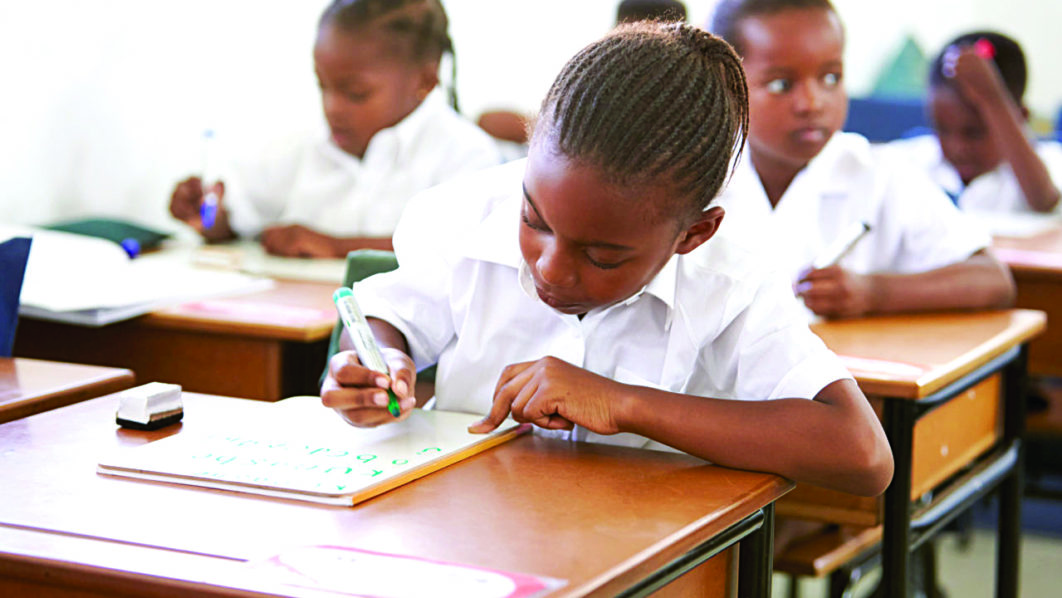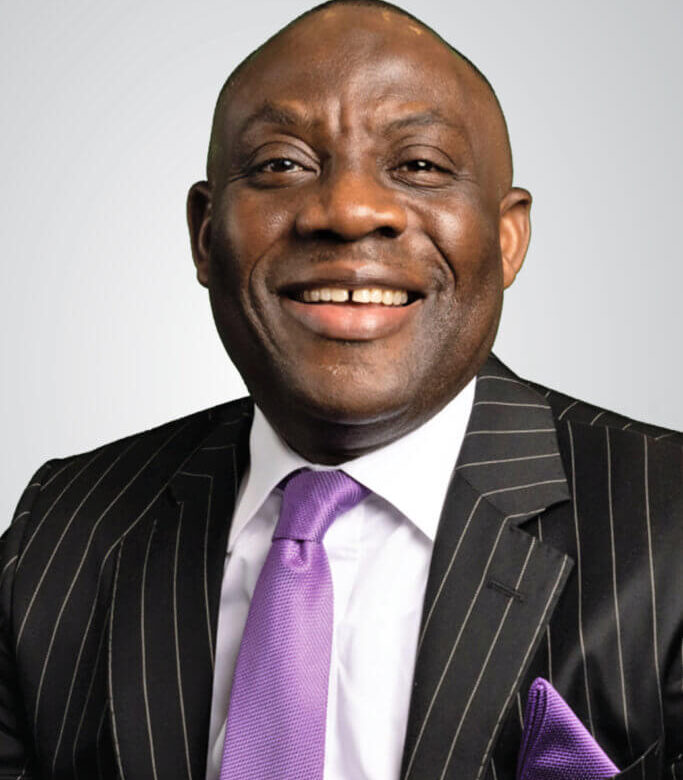
Underage schooling: Parents, experts disagree on dangers, benefits of jumping classes
- Education
- No Comment
- 302

As parents and administrators debate the idea of pupils skipping classes, government has intervened fixing the entry age for primary pupils to join secondary schools, while also banning SS1 and SS2 students from taking external examinations.
The Lagos State government had pegged the entry age for prospective pupils into any private or public secondary school at 12 years to check the registration of under-aged kids.
In a circular to concerned parents, the state government said the new policy would be enforced in public and private schools to enhance compliance.
Government listed the disadvantages in the admission of under-aged children into junior secondary schools, adding that a meeting of associations of private schools, parents’ forum and other related educational bodies would be organised by the state ministry of education to sensitize them accordingly.
In the same vein, the Federal Government barred students in senior secondary school 1 and 2 from sitting for external examinations, including West African Senior School Certificate Examination (WASSCE), National Examination Council (NECO) and National Business and Technical Examination (NBTE).
A circular by the Federal Ministry of Education and signed by Binta Abdulkadir, a director in charge of senior secondary education in the ministry, frowned on flagrant disregard to its directive on writing external examinations by SS1 and SS2 students.
However, stakeholders are divided in their opinions as they argued for and against the new order. While some parents and experts noted that education is about maturity, and any child, who is mature and can coped, should be allowed to jump classes, others want parents to exercise restraint and not be too much in a hurry to push their wards out of school at a young age, saying the affected children may not be psychologically and emotionally balanced to face the rigours of higher classes.
Thousands of Primary school pupils, under the influence of parents, oftentimes, skip Primary five and six classes, and proceed to secondary school. Experts say most of these parents come to regret their action later, because apart from missing the vital lessons of such classes, after graduation, such pupils may have to wait and attain the traditional age of admission before they get to higher institutions.
While many parents and teachers did not see anything wrong in skipping grades, stakeholders cautioned that the practice, which is mostly common in private schools, is not acceptable as pupils involved are emotionally unprepared for the upper classes.
An educationist, Dr Lukman Fadahunsi, said it is compulsory for pupils to attend Primary 1 to 6 classes before they are admitted into Junior Secondary School (JSS) 1.
The director said it is wrong for any Primary school to operate only Primary 1 to 5 classes; rather all basic schools must have Primary 6.
Besides, he said it is also wrong to start Primary 1 lesson at nursery level, because the curriculum is planned based on age and needs of pupils in each class.
“And those who finish Primary or secondary schools at lower age will not have the emotional balance required in the upper stages. Ideally, Primary education starts at age 5 or 6,” Fadahunsi said.
A senior lecturer with the Federal College of Education, Zaria, Dr. Akeem Bello, said children are expected to start Primary school when they turn six and must attend Primary 6 before they are placed in JSS1. He said it is unacceptable for pupils to leave Primary 5 or 6 and start JSS1 outside their normal age group, as age requirement is vital in grade placement.
He said: “Missing Primary 6 lessons can affect a child’s academic performance and can also lead to frustration.”
A parent, Omotunde Balogun, said brilliant pupils in private schools are sent to JSS1 by parents to save costs. She also identified age as one of the factors, explaining that some parents, who feel that their children appear older in age in their present class, often find a way of making them skip such class to a higher level, not minding whether such child can cope in his new classes.
An educationist, Mrs Helen Alege, said not allowing pupils to go through normal processes in their early stage of education would have some negative implications on their learning in future.
She said such children could experience inferiority complex among their mates in secondary school, while those with low IQs will have difficulties coping with their subjects in the new class.
Alege maintained that the physical maturity of children is critical in their educational development, hence, the need for parents to avoid rushing them through the education system.
Some teachers and parents in Ogun State said pupils in Primary 4 and 5 classes are moved to JSS1 based on their academic performances.
Mrs. Rose Odiga said girls are mostly encouraged to skip classes because they grow faster. “For instance, I discovered that pupils start pre-Primary school early in life these days but they leave late. My daughter started at age two but at Primary four, she was already 10 and grown so big. If she is allowed to complete Primary six, it then means she would likely leave secondary school at 18 and you know what it means to start battling with Unified Tertiary Matriculation Examination (UTME) and other related examination bodies for university admission. So, I decided to let her leave at Primary four for secondary school.
“She had initial challenges of coping, which affected her a little, but I got her a private teacher to meet up, she is coping now. Private schools, especially try to waste our children’s time so as to make more money. It wasn’t like that in the past. I went to school at the age of six and finished Primary school at 12,” Odiga said.
Another parent, James Attah, said pupils are encouraged to take common entrance examination at Primary 5 depending on their academic performance.
Attah added that his son skipped Primary six because he was brilliant but had little trouble catching up during his first year in secondary school.
On his part, Innocent Duru, a parent whose daughter moved from Primary 4 to JS 1 said he regretted taking that decision. Although the girl is already in SS 1 class, Duru said the girl is struggling with her studies.
Unlike her elder sister who completed Primary 6 and doing well in class, Duru said his daughter has been struggling to cope and under pressure to meet up with her classmates. He said none of his children would be allowed to skip classes again as the disadvantages far outweigh the advantages.
Duru said: “Some parents do not have the capacity to assess their wards, they may be doing well in school but are they psychologically ready and emotionally matured for secondary school?”
In the same vein, Miss Temiloluwa Adeyemi, who left for secondary school from Primary 4, at age nine, said although meeting up was tough, she has no regrets skipping classes.
Fourteen-year old Adeyemi, who is currently in SS 3, said: “I could cope because I was a brilliant student in Primary school, my parents advised me to try common entrance examination and I got the best overall result. I didn’t feel left-out, at least, I scored an average of 70 per cent in my work at the time.”
However, Adeyemi said she would not advise other pupils to skip classes as coping with the challenges and meeting demands could be difficult.
Mrs. Sarah Idowu, a parent, said there are no benefits to derive from the hasty decision to push pupils from Primary four or five to JSS1.
“From my interaction with many mothers, they said their children are getting old so they have to leave Primary school. But I think the children should be matured. Government is not ignorant of that fact when it pegged certain age limit for pupils to complete Primary education.
“I know those who lagged behind because they left Primary school at four or five. Some of these pupils go faster than their mates but don’t pass West African Senior School Certificate (WASSCE) and those who waited to complete Primary school usually overtake them. So, they need to be matured all round,” Idowu said.
By Iyabo Lawal
https://guardian.ng/features/education/underage-schooling-parents-experts-disagree-on-dangers-benefits-of-jumping-classes/





